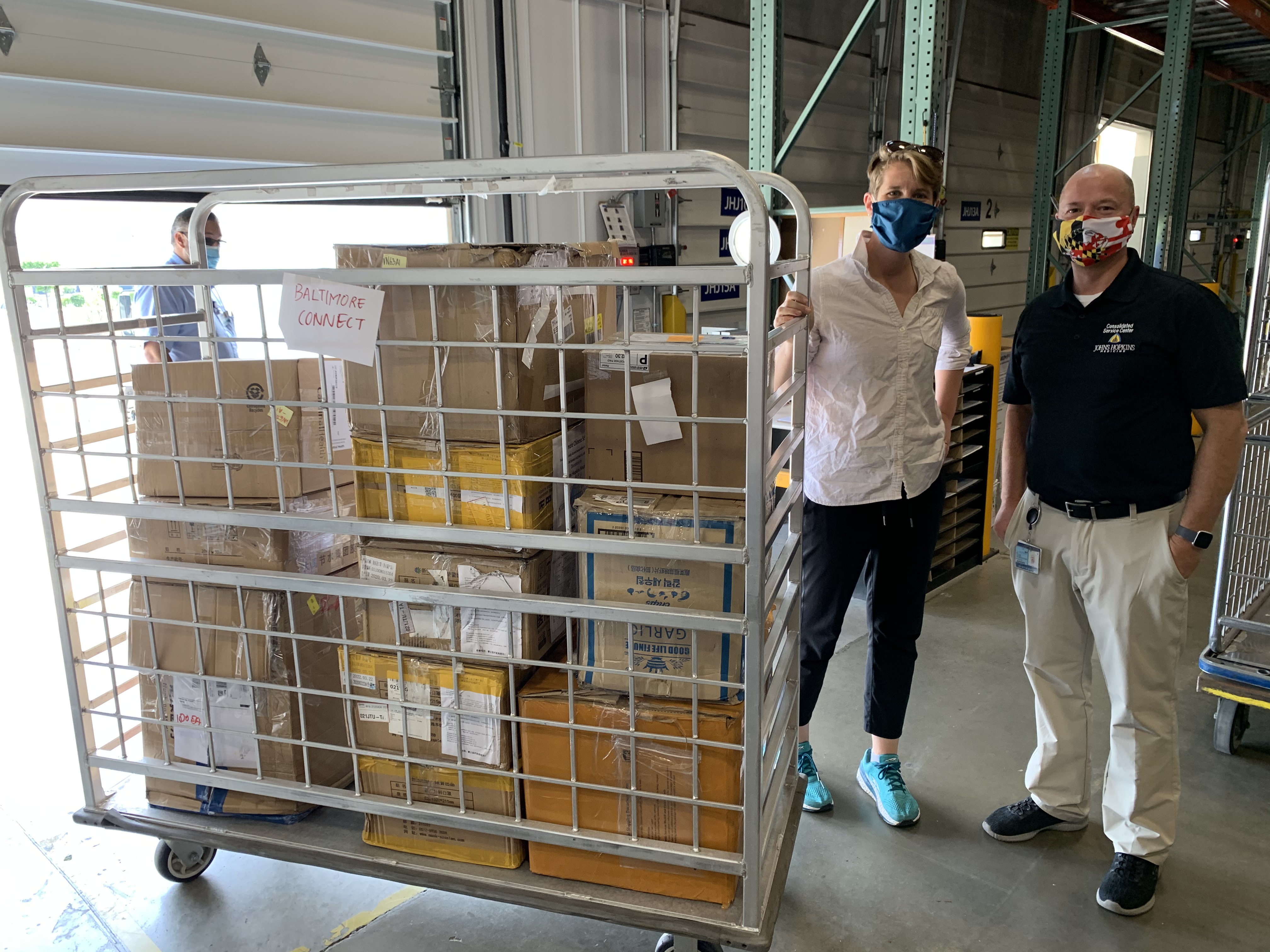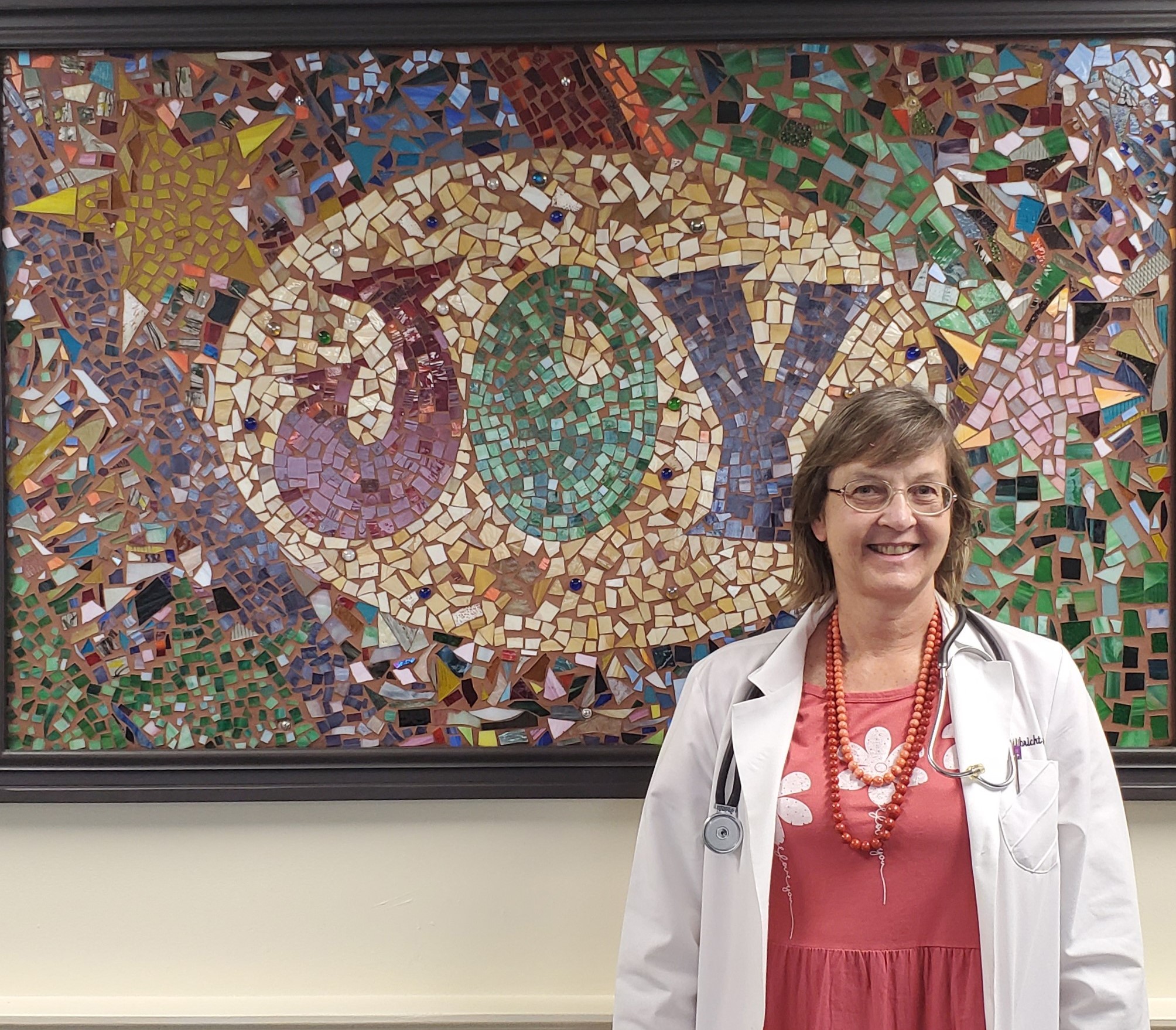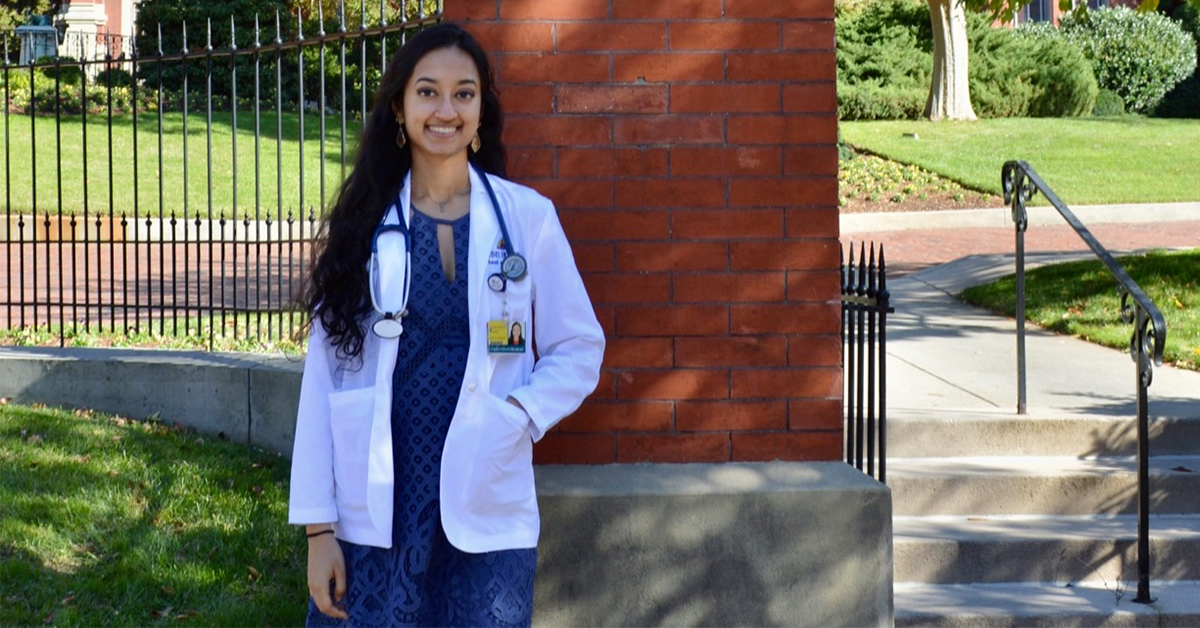Through compassionate patient care, advocacy, teaching and scholarship, Johns Hopkins urban health residents receive world class clinical training that integrates them in the Baltimore community. During their two-week Health Care for the Homeless rotation, for example, residents see how the organization’s clinic is run and learn how to care for patients experiencing homelessness or housing instability.
Iris Leviner, M.D., Johns Hopkins urban health internal medicine-pediatrics graduate, enjoyed her rotation so much that she is now Health Care for the Homeless’ director of pediatric and family medicine. She also directs the rotation for the residents.
Leviner says Health Care for the Homeless takes a broad view of what health care means.
“We think about the whole person,” says Leviner, a 2016 Johns Hopkins graduate. “An important part of our work is treating all clients with dignity. We aim to minimize barriers and prevent and end homelessness.”
Rotations with community-based organizations that address local problems such as substance use, incarceration and homelessness are the centerpiece of the combined internal medicine-pediatrics urban health residency and Osler urban health internal medicine primary care leadership track programs.
“We’re producing leaders in primary care who are focused on caring for East Baltimore and communities like it across the country,” says Lenny Feldman, M.D., program director of the residency program and director of the leadership track. “Residents receive the usual training provided through a residency program and are supplemented with specialized knowledge that helps our residents conceptualize, assess and mitigate the social determinants of health. That training is necessary for a graduate to be able to confidently and competently care for disadvantaged communities like ours.”
Leviner, who now supervises urban health residents, says being able to collaborate with Johns Hopkins learners is invaluable.
“The barriers and traumas that clients face are extremely complicated, so it’s helpful to have that relationship,” she says. “We want to have providers of the greatest quality who also come from really diverse backgrounds. Urban health residents are attuned to taking care of vulnerable people. They care about being here and they want to learn.”
Second-year urban health resident Wardah Athar had a two-week rotation at Health Care for the Homeless and plans to do a second rotation.
“I’m impressed by the services that they provide,” says Athar. “They have substance use counseling and mental health counseling on-site. They also have social workers. It’s really hard for some patients to get to multiple appointments on multiple days, so Health Care for the Homeless makes it easy. Patients can get everything they need in one place on one day.”
Athar says she saw a variety of patients at the clinic.
“There’s really not one type of patient,” she says. “Some folks are homeless and living on the street. Some people are housing unstable. We also have patients who are new to the country. The thing you realize working with these communities is that medical care is a small piece of the puzzle and sometimes not the most important piece. Many patients are more worried about food or transportation. You learn to think holistically about primary care.”
Before her two-week Health Care for the Homeless rotation, third-year urban health resident Lindsay Sheets was already familiar with the organization — she worked on the administrative side there while pursuing a master’s degree in public health. During the rotation, Sheets spent some time with Health Care for the Homeless’ medical respite program, which provides beds for patients who have been treated but still have medical needs that make it unsafe to discharge them until they can transition to more stable living arrangements.
“I saw patients who I had treated in the hospital and I got to see them improve,” Sheets says. “My time there has pushed me to be more assertive in trying to find my patients safe housing and beds with the medical respite program. It is rewarding to see my patients’ continued progress in their health outside of the hospital.”
Sheets says she often tells her Johns Hopkins colleagues about the resources at Health Care for the Homeless so that more patients can have safety nets after discharge.
“The more connections we can have with community organizations, the better relationships we can have with our patients,” she says. “Through this rotation, I have learned to provide more compassionate care, and I better understand the idea of holistic patient health.”



